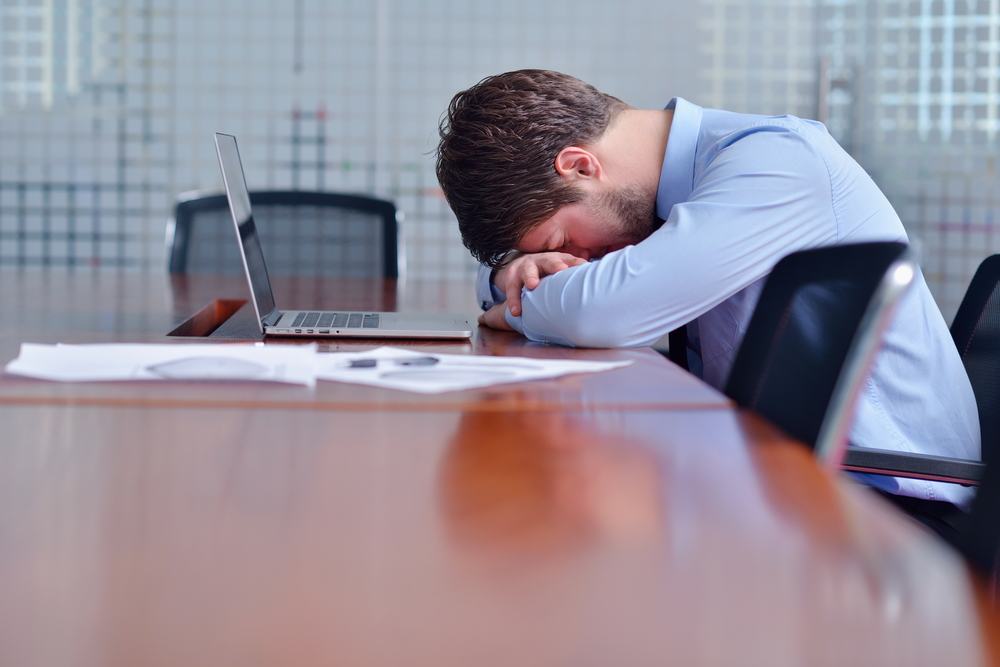In February 2015, YouTube user “Where’s Stu” posted an eye-opening look into his life as a Tokyo salaryman. The British-born office worker documented a week of his life through short clips showing him going to and from his middle management job in a large Japanese corporation.
Typically, his work day began at 9:30 am, and he can be seen starting his commute home at 11:30 p.m., often only getting five to seven hours of sleep a night. In the bottom corner, we can see how many hours worked versus how many hours he slept. By the time we reach Sunday (though working a Saturday is not mandatory, many workers do choose overtime), we can see that a somewhat beleaguered Stu has worked 78 hours and slept for 35. This work-life balance is commonplace in Japanese culture, but has shown to increase the risk of both physical and mental health problems.
It’s no surprise that excessive working hours can damage productivity. But could long hours actually kill us? One study by UCL academics found that just three hours of overtime can lead to a 60% increased chance of coronary heart disease. But hard work never killed anyone, right? The Japanese term Karōshi (death from overwork) would suggest otherwise. The cultural attitude that salarymen should be expected to work up to 80 hours a week is a social problem. Amongst this group of workers, record rates of suicide and coronary heart disease have been recorded.
This problem is not just unique to the “salarymen” of Tokyo. The time demanded from employers on their employees in Western Europe and North America is greater now than it’s ever been. Bob Dylan is quoted as once saying “A man is a success if he gets up in the morning and goes to bed at night and in between does what he wants to do.” The main problem now is that many of us are still answering work emails from our beds. We live in a time where we are expected to be able to work, or be at least contactable for our work 24 hours a day, seven days a week. The technological revolution, particularly around smartphone technology, means that many white-collar workers are now digitally chained to their desks.
Within the business community, an increasingly loud chorus of voices are calling for a review into when employers should be able to contact their employees. In France, the government has taken steps to give workers the ‘right to disconnect,” a measure that will see companies signing a “charter of good conduct” that sets out hours after work and on the weekend where employees shouldn’t be expected to answer emails. The move came in the wake of pressure applied by workers who had a grievance with employer’s expectations to be able to contact them at any time and any place. After sustained protests, François Hollande’s government felt compelled to introduce the legislation required to solve this problem.
The undeniable fact is that burning the midnight oil certainly has the potential makes us more accident prone. Historical cases, such as Chernobyl, Three Mile Island, and the Challenger disaster, are now believed to have been caused, in part, through various acts of negligence as a result of sleep deprivation. While these are all historically huge disasters, similar things are happening on a smaller level. For example, a Scottish graphic designer accidentally produced a large shipment of T-shirts that said “poo art” on them, when they should’ve said “pop art,” after staying up till 4:00 a.m. to complete a client order. Though mistakes of this nature aren’t going to cost lives, they have the potential to ruin careers and reputations.
With a greater focus given to white collar office workers, Harvard research has shown that American workers lose up to 11 days of productivity due to tiredness at work. It can, therefore, be argued that when it comes to pushing employees to work longer hours, we are presented with the law of diminishing returns. The research shows that employees are at their most effective when they are well rested and happy within their work.
Industry leaders in Sweden have made steps to reduce the standard working day to six hours, recognizing the potential there is to boost productivity. Whether this attitude will translate over the Atlantic is unclear, though it must be conceded that many workers won’t be prepared to accept the drop in wages that would come with losing 40 hours a month.
The money aspect might not even be the biggest barrier in encouraging workers to reduce the amount of hours in the working day. An article by Time magazine argued that the millennial attitude to technology is in danger of further trapping workers in a 24/7 work cycle. The generation who will become the office workers of tomorrow are growing up within an environment where constantly interacting with technology is seen as the norm. Whether this generation will opt for a lifestyle that seems them perpetually ‘plugged in’ remains to be seen.
And what of our British Salaryman, ‘Where’s Stu’? After six months, he decided to quit his job in and travel Southeast Asia. He’s currently living back in the U.K., seeking a job. Presumably with a lighter working schedule than that expected of the average Tokyo salaryman.

